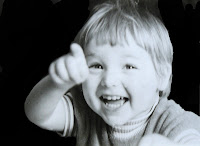In moral life, what is convenient is probably false.
To develop a healthy spirit, we need ideals, a concept of happiness, healthy morality. A man of spirit does not expect easy luck. Having had no major difficulties early in life, he is nevertheless prepared to meet life. He is healthier. He is not subject to heavy moods and gloom. He does not despair. His views are not easily shaken. He does not lose faith in life when confronted with grief and misfortune. He can see good things about people. He is able to smile! He knows happiness and believes in it.
Humanity and strong spirit is what can be developed by parenting. The rest depends on natural abilities and fate.
The science of parenting is not about creating a better life or society. It is about bringing up healthy, independent, honest, kind and happy people, and no more than that.
Parenting is a spiritual process. But how much do we know about the nature and laws of spiritual processes?
We'll come back to this later in greater detail, but for now let us note one common characteristics of spiritual processes: here contradictions cannot be resolved. It is not either A or B, it is both A and B. In a 2-week old suckling, we should be able to see both a child and an adult, not half-child or half-adult.
We'll come back to this later in greater detail, but for now let us note one common characteristics of spiritual processes: here contradictions cannot be resolved. It is not either A or B, it is both A and B. In a 2-week old suckling, we should be able to see both a child and an adult, not half-child or half-adult.
In spiritual processes there is no measure, no scale, no norm, no golden mean. We should come to terms with these inherent contradictions. We should give children independence and we shouldn't, we should understand them and we shouldn't, we should spoil them and we shouldn't.
These contradictions create tension in our spiritual life. We need constantly to exercise our spiritual muscle, expend our spiritual energies.
It is precisely these contradictions that necessitate parenting and education. If love and conscience, truth and duty, independence and spiritual bond with parents could easily coexist, parenting would not be needed.
Man's educational power is not about authority or strength of character, not even about will or love or wisdom. It is about his spiritual ability to join contradictory spiritual movements together in one, to attain harmony, moral beauty. Educational power does not oppress, but elevates.
With weak educators, everything is flat, one-sided. They try to remove moral contradictions, do not feel them. With strong educators, on the other hand, everything is rich, like a rainbow, in feelings, nuances, shades and colors, everything is contradictory as life itself, everything encourages the child to accept life in its complexity and inconsistency, strengthens his morals and his spirit.
To sum up, we should try to create a more accurate image of a child and to develop our educational power (ability). This is what parenting is all about.
This concludes the first chapter of Parenting for Everyone, which is about the aims of parenting, which we can sum up as follows:
This concludes the first chapter of Parenting for Everyone, which is about the aims of parenting, which we can sum up as follows:
- Independence and Freedom
- Love and Conscience
- Happiness and Duty
- Truth
- Spirit
